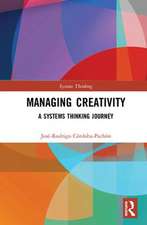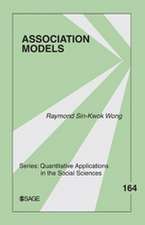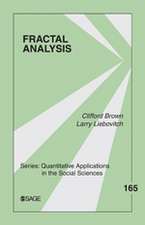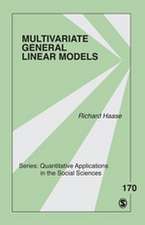Qualitative Interviewing: The Art of Hearing Data
Autor Herbert J. Rubin, Irene S. Rubinen Limba Engleză Paperback – 6 dec 2011
Preț: 531.64 lei
Preț vechi: 681.59 lei
-22% Nou
101.74€ • 105.83$ • 83.99£
Carte disponibilă
Livrare economică 19-25 martie
Livrare express 08-14 martie pentru 37.30 lei
Specificații
ISBN-10: 1412978378
Pagini: 288
Dimensiuni: 187 x 232 x 19 mm
Greutate: 0.54 kg
Ediția:Third Edition
Editura: SAGE Publications
Colecția Sage Publications, Inc
Locul publicării:Thousand Oaks, United States
Recenzii
“This book is exactly what I was looking for in that it covers interviewing and analysis in depth.”
“The Third Edition will be very useful for graduate students. It appears to seamlessly shift its lens from broad landscapes to close-ups without losing focus on the content.”
“Students leave this book fully informed of the nuances and complexity of interviewing as well as excited about the promise interview research findings offer.”
“This text is well-written and easy to follow. It follows the natural flow of a qualitative project.”
“The authors provide a clear and detailed illustration of the nuts and bolts of interviewing in qualitative research. The focus on the reflective process, question development, and procedural steps associated with qualitative research is rich and thorough.”
“This edition is at once simpler, and clearer yet more expansive and richer in content, examples and use.”
“[The book] is somehow both more concise and more comprehensive than the Second Edition, providing a rich discussion of philosophy as well as design and analytic methods. The authors also have a very pleasant writing style that is engaging to the reader, and provides both clarity of the concepts discussed as well as a sense of a strong knowledge through the use of personal narrative and sharing of experiences.”
Cuprins
Chapter 2. Research Philosophy and Qualitative Interviews
Chapter 3. Qualitative Data Gathering Methods and Style
Chapter 4. Designing Research for the Responsive Interviewing Model
Chapter 5. Designing for Quality
Chapter 6. Conversational Partnerships
Chapter 7. The Responsive Interview as an Extended Conversation
Chapter 8. Structure of the Responsive Interview
Chapter 9. Designing Main Questions and Probes
Chapter 10. Preparing Follow-Up Questions
Chapter 11. Variants of the Responsive Interviewing Model
Chapter 12. Data Analysis in the Responsive Interviewing Model
Chapter 13. Sharing the Results
Chapter 14. Personal Reflections on Responsive Interviewing
Notă biografică
Herbert J. Rubin is Professor Emeritus of Sociology at Northern Illinois University. He is the author of Applied Social Research and (with Irene Rubin) four editions of Community Organizing and Development. He has written articles based on in-depth interviewing that explore rural development in Thailand, suburban land-use fights, cooperative housing and economic and community development. Both his monograph on Thailand, The Dynamics of Development in Rural Development and his book on community renewal in the United States, Renewing Hope within Neighborhoods of Despair: The Community-based Development Model, are based on participant observation and hundreds of in-depth interviews. He is currently using open ended in depth interviews as well as participant observation to study organizations that advocate for the poor.























